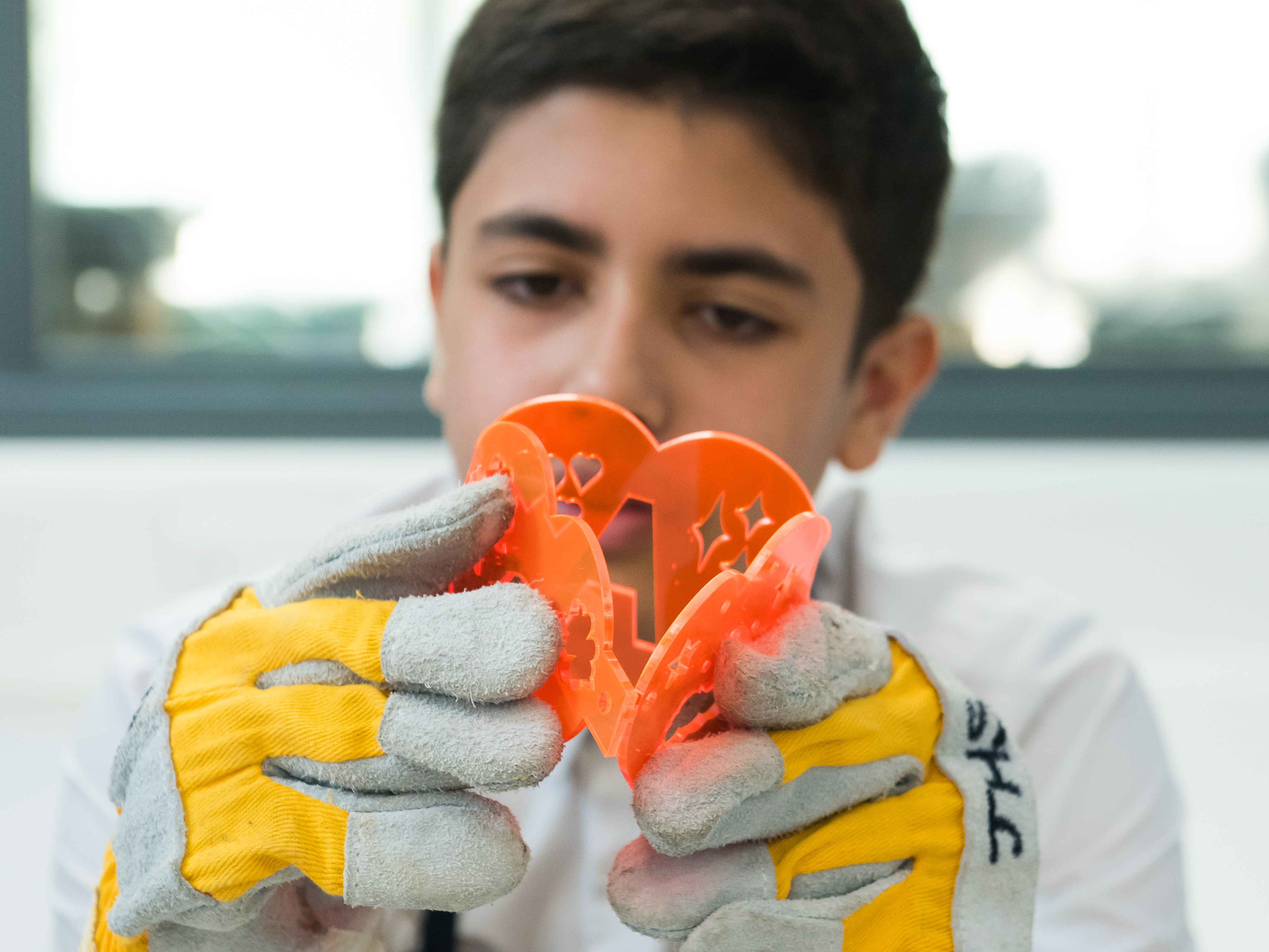Search for our courses on the .gov website: University of Cambridge (C05)
Becoming a teacher was a natural transition. I decided working in a design studio, sat in front of a computer monitor all day was just not for me. Teaching has allowed me to develop my knowledge and understanding of design and technology and then share this with the students.
Design and Technology as a subject provides young people with an ideal opportunity to develop their learning and understanding of the world around them through problem identification; problem solving; abstract thinking; and the application of diverse knowledge domains and intellectual abilities. Cambridge offers PGCE students an excellent opportunity to explore the creative abilities of young people and challenge established practices in Design & Technology education. You will be given opportunities to develop innovative and progressive teaching and learning strategies, which will contribute to making Design and Technology both an enjoyable and modern subject for young people in secondary schools.
Practical sessions complement the latest thinking in education and PGCE students will develop the skills, knowledge and understanding to become reflective practitioners and critical thinkers in the area of Design and Technology education.
Bursary
PGCE students may be eligible for a bursary or scholarship. See the DfE 'Get into Teaching' website for more details.

Who is this course for?
Applications are welcome from anyone who holds a 2:1 degree (or higher) in a ‘design’ (broadly conceived) related discipline such as: Product-Industrial-Fashion-Textiles-Graphic-3D-Interior-Furniture Design; or an engineering discipline i.e. Mechanical-Electrical-Electronic Engineering; or Architecture. Applications are welcomed from those who have recent and relevant commercial/industrial experience or art related degrees that have a strong 3D component (practical/workshop based).
What will I study?
The D&T course at Cambridge is distinctive in that it is framed around both particular historical and contemporary debates within the field of D&T education and education more widely. Each aspect of the course is informed by theoretical and/or empirical research and prepares the aspiring teacher of D&T to develop critically and reflectively in relation to their own classroom teaching practice(s) and children’s learning. An example of course content includes the role of the D&T teacher with respect to:• Valuing design as a creative and iterative process
• Recognising that design is a dialogic, collaborative/distributed endeavour
• Appreciating how design can engender empathy in young people, broadening their empathic horizons with respect to understanding other people’s perspectives/needs
• Appreciating the role of design in critical debates around inclusion and related pedagogies (for example inclusive design, BAME and Gender).
Furthermore, PGCE students will
• Have teaching opportunities in two contrasting schools including post 16 experience
• Undertake a small scale research study of their own • Have opportunities to discuss emerging debates via presentations from former D&T PGCE students undertaking PhD research within D&T education
• Have opportunities to develop aspects of their own subject knowledge
• Undertake an accredited programme of H&S training.
How will I study it?
Much of the Design & Technology course consists of sessions organised in a practical, workshop atmosphere that gives PGCE students an opportunity to reflect on their understanding of the teaching and learning of young people and its application in the classroom. The course will provide practical experience in core activities such as:
- Subject specific Pedagogy and knowledge
Designing that includes Making (e.g. casting; laser cutting; electronics; plastics manipulation)- Investigating New Products and Applications
- An Understanding of Technological Concepts
- Information Technology Related Skills
- Design & Technology Health and Safety Certification for using Workshop Equipment
The course programme has been developed to combine Subject Studies sessions at the Faculty of Education with professional experience in schools. The first term's work concentrates primarily on preparation for the basic elements of classroom teaching, and introduces students to the wide range of resources and teaching strategies available to Design & Technology teachers. It also considers the nature of the subject itself, its representation in the National Curriculum and its desirable form in schools.
Later in the course, there is a focus on new technologies, fieldwork and wider curriculum issues, such as the role of Design & Technology in the changing landscape of educational provision. For example, we look at how an evolving rationale for the subject addresses the issues of creativity in schools and how developing the thinking processes of young people can reflect real-world designers, which are fundamental to both the careers and human well-being of young people after leaving school.

Advice for applicants
Those invited for interview will be expected to bring and discuss a portfolio of their work which demonstrates competence in a design related discipline. People’s experiences will be different but where possible a portfolio should illustrate all aspects of the process(es) of design including problem exploration, conceptual sketches/models (prototypes) as well as finished outcome(s) or photographs of finished outcomes.
For full application details visit our PGCE admissions page.
